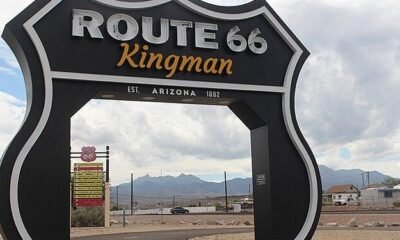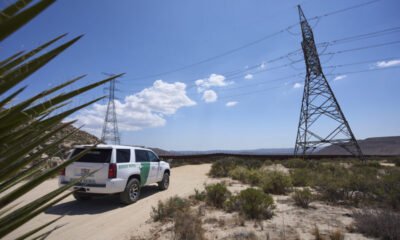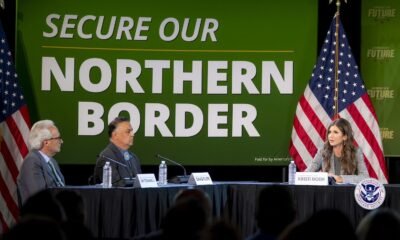crime
Election Uncertainty: When and How Could the U.S. Military Intervene in American Cities?

Amid heightened tensions in this election season, law enforcement and intelligence agencies are raising alarms about the potential for violence during Tuesday’s election. Recent incidents reflect this concern: in the Pacific Northwest, ballot boxes have been set on fire, while a Texas man reportedly assaulted a 69-year-old poll worker over a MAGA hat. According to a study by the University of Pennsylvania, the possibility of civil unrest surrounding the 2024 presidential election is not only realistic but likely.
This examination leads to a pressing question: Could the military be summoned to quell election-related violence in U.S. cities? The short answer is yes, but the complexities surrounding such a decision worry legal experts. Claire Finkelstein, director of the Center for Ethics and the Rule of Law at UPenn, warns that the rule of law is in a precarious state.
The deployment of military forces domestically hinges on legal and constitutional authority. Typically, the president or a state governor has the power to authorize troop movements. The military can support civilian law enforcement only after a thorough review of any requests for assistance, and it cannot intervene under vague pretexts on Election Day.
The distinction between active-duty troops and the National Guard is crucial. While the National Guard operates under state control for various missions, a governor may federalize these troops, placing them under presidential command. This action subjects them to heightened regulations that prevent the military from acting as a domestic police force.
A key law in this context is the Posse Comitatus Act, prohibiting the military from performing law enforcement duties on U.S. soil. This act restricts military involvement in protests or demonstrations following the election. U.S. law explicitly forbids troops from being present at polling locations, reinforcing the notion that elections are managed solely by the states.
However, exceptions exist, such as the potential for military presence to counter threats deemed as armed enemies of the state. The vagueness surrounding the definition of “enemy” could allow for broad interpretations, leaving final decisions to the sitting president.
In practice, the National Guard, if under the command of a governor, could provide support on election day. Nevada Gov. Joe Lombardo recently announced the availability of 60 National Guardsmen to assist law enforcement, although he did not expect their deployment. Other states like Washington and Oregon have similarly positioned their troops ahead of the election.
Regulations differ by state. For instance, Pennsylvania prohibits military presence near polling sites unless they are voting. Some governements have previously utilized National Guard units for election security, especially during unprecedented circumstances like the COVID-19 pandemic.
While governors maintain significant authority over National Guard mobilization, retired military officials have expressed concerns regarding the politicization of these units. Gen. Daryl Bohac emphasized the importance of nonpartisan planning for any deployment around elections to preserve public trust in the military.
The Insurrection Act is another crucial piece of legislation. This statute grants the president wide-ranging powers to mobilize military forces to quell rebellions or unrest. However, invoking this act doesn’t override constitutional protections, requiring military units to uphold civil liberties during operations.
Historically, the Insurrection Act has not been invoked in many years, situating the country in a notably long period without its use. Past presidents from both parties have activated it in response to civil unrest, most recently during the 1992 riots for justice following the Rodney King incident.
Concerns are mounting over potential misapplications of this authority. Former President Trump raised eyebrows recently by discussing military involvement to manage chaos on election day. Yet, any actions taken would require careful consideration and legal backing, roles he would not assume until his potential inauguration day.


















